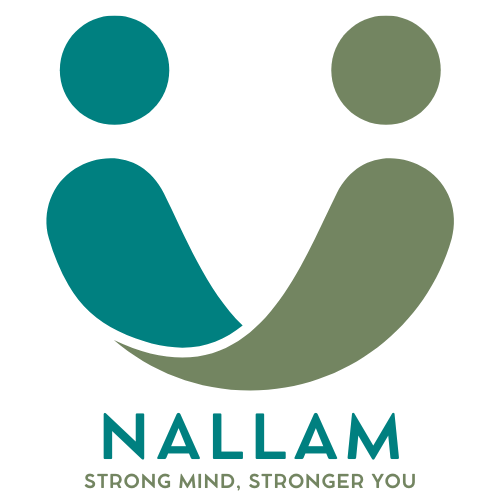Welcome to Your Safe Space for Healing and Growth
Life can be overwhelming—but you don’t have to face it alone.
Why Choose Me?
25+ years of corporate experience
Certified in Counselling and Psychotherapy
Personalized and compassionate approach
100% confidentiality guaranteed
Available for both in-person and virtual sessions
Youth-Focused Services
Individual Therapy
Work one-on-one to address personal challenges, trauma, stress, or low self-esteem.
Couples Therapy
Reconnect and rebuild trust, communication, and intimacy in your relationship.
Family Therapy
Resolve conflicts and foster healthy communication within family systems.
Group Therapy
Share experiences and gain perspective in a supportive group setting.
Professional Mentoring for Students & Young Adults
Guided by a psychotherapist, we help young minds build self-awareness, confidence, and clarity for a fulfilling future.
Help & Support
Facing challenges? We're here to listen and guide you with care and expertise. You're not alone.
Frequently Asked Question
What is counselling and how is it different from psychotherapy?
Counselling typically addresses specific life challenges and is shorter in duration. Psychotherapy explores deeper emotional patterns and may involve long-term work.
How do I know if I need Therapy?
If you are feeling overwhelmed, stuck, unhappy, anxious, unable to manage your emotions or simply want to understand yourself better, therapy can help. You don’t need to be in crisis to benefit. Therapy can help provide clarity, support and tools for change
What happens in the first session?
The first session involves –
• Getting to know your concerns
• Exploring your background
• Clarifying your goals
• Discussing confidentiality and boundaries
What happens in a typical follow-up session?
Sessions are confidential and client-centered. It involves talking through your concerns with a trained therapists, who listens nonjudgmentally, asks insightful questions and may offer techniques to help you gain insight and clarity.
How long does a Therapy take?
It varies. Some issues resolve in a few sessions, while deeper work may take few weeks, or couple of months, sometimes years. The pace is determined collaboratively between the client and the
therapist.
How often should I come for sessions?
Most clients start with weekly sessions. We’ll collaborate to find a rhythm that supports your needs, goals and progress.
Can I stop therapy anytime?
Yes. You are free to end therapy whenever you choose. However, it is best to discuss this with your therapist to ensure a smooth and supported conclusion.
What if I don’t feel comfortable with my therapist?
It’s okay. A good therapeutic relationship is essential. If you don’t feel a connection after a few sessions, it’s appropriate to discuss it or seek a better fit.
Can therapy help with relationship issues even if my partner won’t come?
Absolutely. Individual therapy can help you understand your patterns, set boundaries and make empowered decisions – even without your partner’s participation.
Will therapy make me feel worse before I feel better?
Sometimes, yes. Exploring painful memories or feelings can be difficult, but it’s often a necessary part of healing and growth.
What if I cry or get emotional during therapy?
That’s completely normal and welcomed. Exploring deep feelings can bring emotions to the surface – and that’s part of healing. Therapy is a safe space to express emotions without judgement.
Can I talk about anything in therapy?
Absolutely. This is your space. No topic is off-limits. Therapists are trained to handle a wide range of issues, from daily stress to deep trauma.
What if I am nervous and don’t know what to say?
That’s completely okay. Many people feel that way at first. You don’t need to plan or prepare – we’ll take things at your pace and you are welcome to share whatever feels right.
How do I know if therapy is working?
Signs include increased self-awareness, emotional relief, healthier relationships, improved coping and greater sense of control over your life. Progress can be subtle at times but meaningful and
lasting.
How do I book an appointment and make payments?
What approach or therapy method do you use?
I use integrative and person-centred approach, drawing from-
• Psychodynamic therapy
• Cognitive-behavioural techniques
• Inner child work
• Mindfulness
• Trauma-informed care
each session is tailored to your unique needs and pace
Take a step toward your well-being — Speak to your therapist today.
Your mind deserves the same care you give your body.
Whether you’re feeling overwhelmed, stuck, or simply need someone to talk to — your therapist is here to support you. No judgment. Just a safe space to reflect, heal, and grow. Start the conversation. Choose yourself today.
